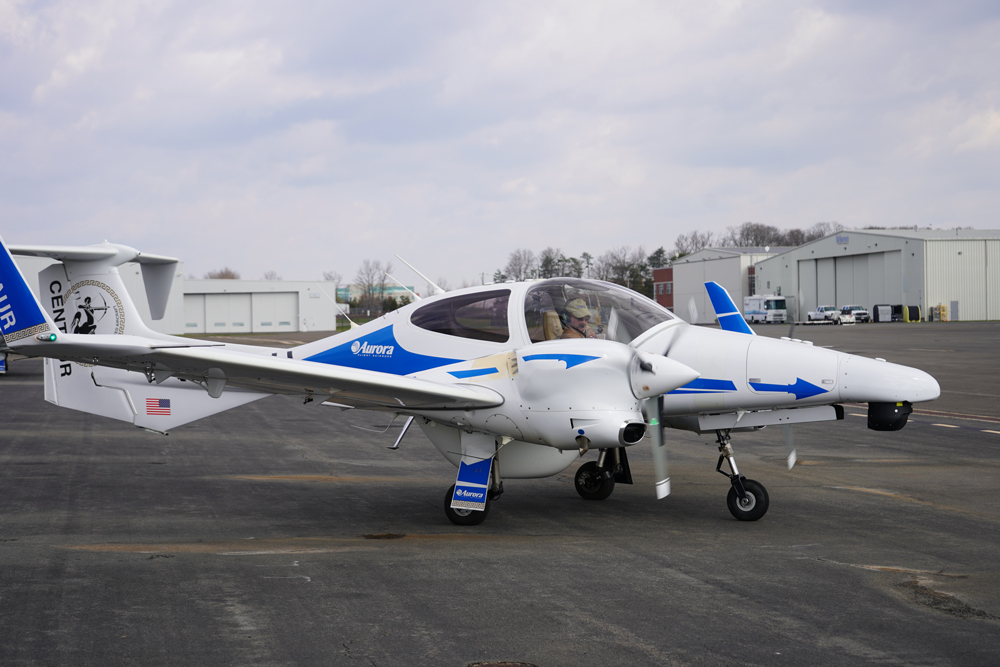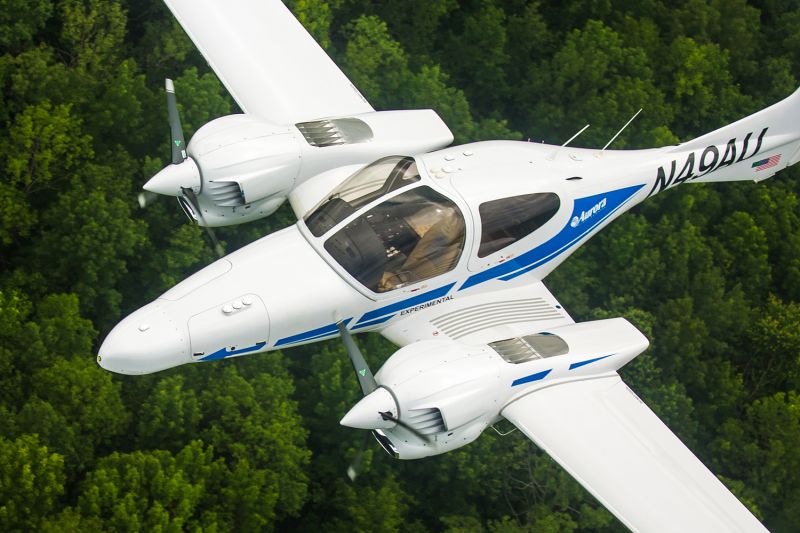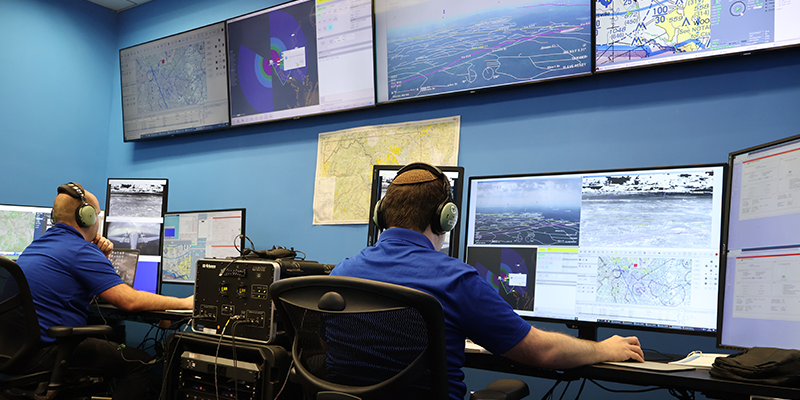Aurora flight test engineers Moshe Hollander and Andew Prince control Centaur from our Manassas, VA headquarters.
At Aurora, we fly often. Whether it’s pilot currency, aircraft maintenance, or technology testing, we’re at home in the air. Recently, Aurora’s flight test team put our Centaur optionally piloted aircraft (OPA), equipped with an EO/IR camera, maritime surveillance radar, and Automatic Identification System payloads, through its paces. The team leveraged Centaur’s unique capability to operate as a surrogate uncrewed system, flown from a ground station with an on-board safety pilot, to conduct cost-effective flight testing in the National Airspace System (NAS).

Aurora test pilot Jason Jewell prepares for a test flight aboard Centaur.
In one recent example, Centaur embarked on a mission to evaluate data link quality and determine optimal operating parameters in degraded weather conditions. Centaur flew from our Manassas, Virginia headquarters to the Potomac River, testing the data link at various altitudes ranging from 4,500 ft to 7,500 ft.
The flight evaluated the aircraft’s ability to transmit images back to the ground station, which is crucial in scenarios where inclement weather requires the aircraft to fly at lower altitudes. During the flight, two Aurora flight test engineers – an air vehicle operator and a mission payload operator – controlled Centaur from our remote operating center while an onboard safety pilot monitored the system, ensuring safety and efficiency throughout the flight.
Centaur acts as a test bed for a wide variety of test cases. Centaur was recently used to expose student test pilots to working with ISR capabilities and test techniques on a surrogate unmanned aircraft. The platform is also involved in developing and testing sensor payloads for several of Aurora’s X-plane development programs.
Based on a certified twin-engine general aviation aircraft, Centaur boasts a high degree of safety and redundancy, along with exceptional range, efficiency, and low life-cycle costs. Centaur’s seamless integration of piloted, remotely piloted, and hybrid capabilities ensures a reliable and cost-effective solution for the rapid development and testing of payloads and autonomous behaviors. Advanced automation features provide a high level of versatility. enabling automatic takeoff and landing and remote operation from a ground control station, with or without an onboard safety pilot.
The hybrid flight capability simplifies operations in the NAS and helps expedite the transition from development to flight test. Having an onboard safety pilot eliminates the need for remote test sites, allowing for operation from airports and focusing project time and budget on achieving mission objectives.

Centaur combines the best of piloted, remotely piloted, and hybrid capabilities in a highly reliable and cost-effective aircraft.
At Aurora, our engineers work to create and improve upon innovative solutions for crewed and uncrewed flight. We continually invest in Centaur, refining its capabilities and integrating the latest advancements in technology and engineering. With its versatility, reliability, and exceptional performance, Centaur continues to provide revolutionary flight testing capabilities.


